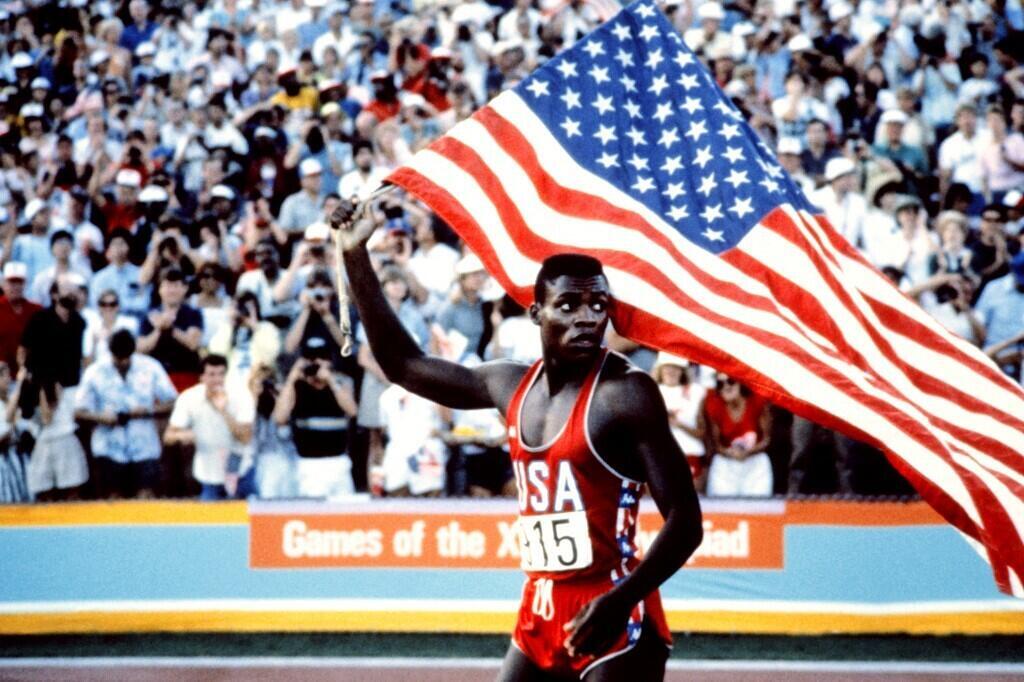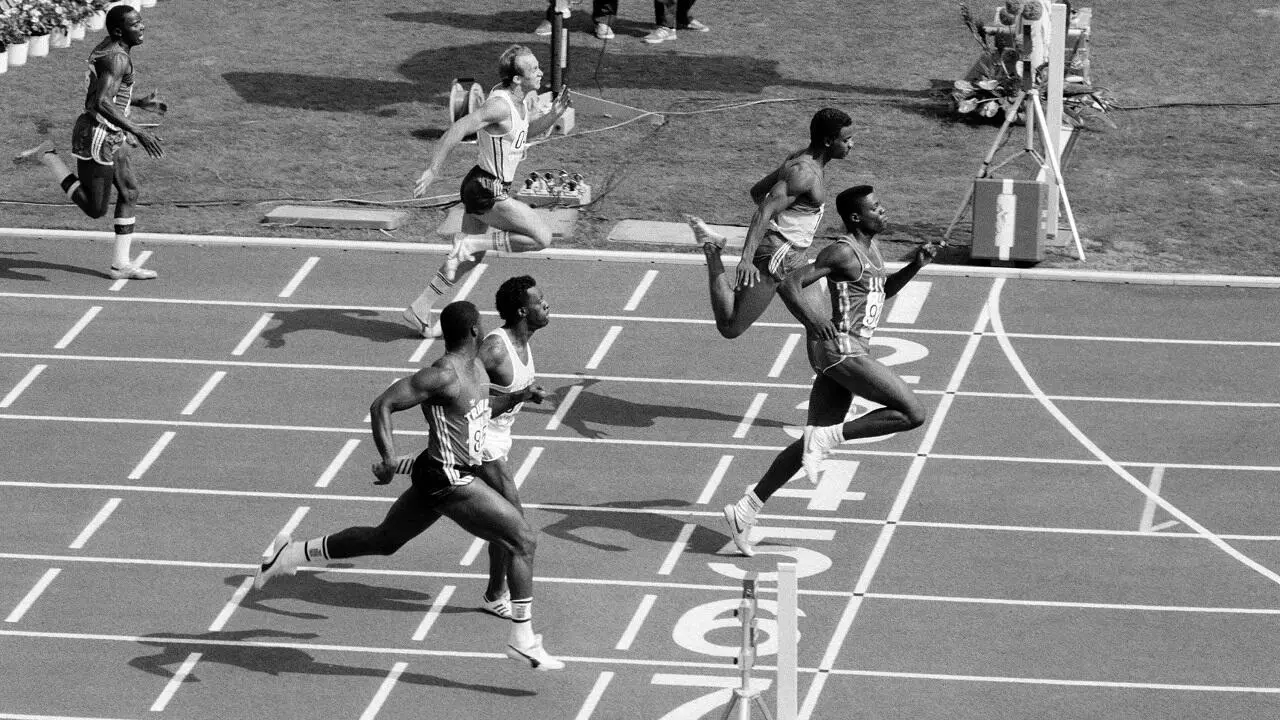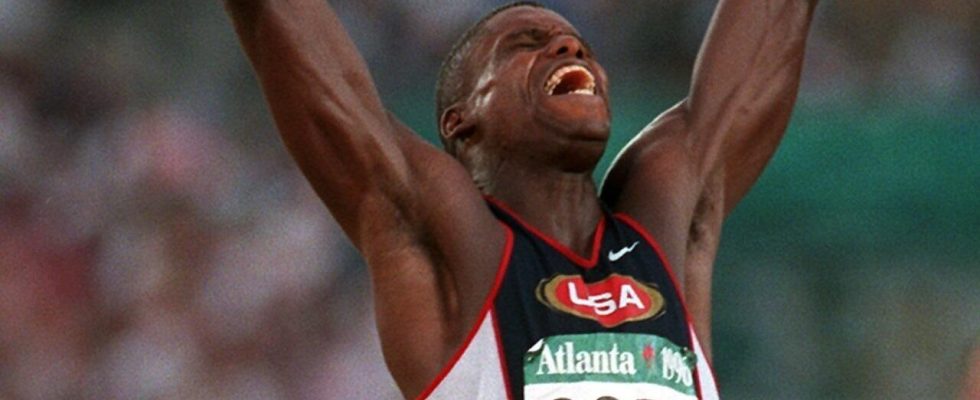As the 2024 Olympic Games in Paris are fast approaching, RFI had the opportunity to speak in Houston (Texas) with the American Carl Lewis, sprinter and jumper, sportsman of the 20th century according to the IOC and legend of athletics with nine Olympic gold medals.
RFI: What is the best memory of your 40 years of Olympicism?
Carl Lewis: As an athlete, of course there were those ten minutes at the 1996 Atlanta Olympics when only one other athlete capable of beating me in the long jump failed. James Beckford is on his last try, he runs, jumps, lands on the sand and it’s over. I have one jump left, but I won with 8.50 meters, so I’m not even attempting it. I immediately start running around the stadium. In my country ! In this moment, I know it will be the last time. And the whole stadium stands up to applaud me. For ten minutes! Normally, in athletics, the competitions come one after the other, but here, time stood still. The organizers waited until I finished my tour of the stadium to start other events. Ten minutes ! That was really special. You have these moments in life that are unique, that won’t happen again and you know it when you experience them. It was that moment.
What is the difference for an athlete between the Olympics and the World Championships?
I like both, but the Olympics are special. Every four years, there are two days when you have to be ready. For 12 years, I had to be at my best during these two days. It’s extremely difficult. So many things can happen, an illness, indigestion, a family problem, an injury while walking barefoot. All these little things that you have to pay attention to, it’s very strange.
These Games are taking place in Paris, the next ones in 2028 will be in Los Angeles, where it all began for you…
The Los Angeles Games will take place exactly 44 years after my medals there. I really didn’t think I would go back. It will be amazing, I’m sure. But Paris 2024 will be a century after its previous Games in 1924. It’s deserved, it’s a fabulous and fascinating city, I’m sure it will be exciting and that in the United States too, people will be excited. Right now, we’re not thinking about it, but when it starts, you’re going to see the excitement. Paris will be amazing and Los Angeles will be great, I’m sure.

Do you think that at the Olympics, American diversity is better represented than in other sectors of society?
In America, there are some great things and some not so much. We are a melting pot. And despite everything that happens here, each year our sports incorporate a little more diversity. For example, our best fencers are an African-American and a young Muslim woman. And this will continue, no matter what. Sport allows this social elevator. Life is difficult, complicated, but like the gumbo soup we make in Louisiana and Texas, you have to add ingredients, taste then add spices when it’s not good, mix again, until let it be delicious. We need to believe.
Olympism is also the opposite of the division that we currently see everywhere in the United States. It also allows you to think about others and not just yourself. In 1969, my mother and father started an athletic club for girls. My mother, a teacher, wanted the girls to be on the race tracks, but she only received refusals. So, she created her club. I was 8 years old. We spent our summers with my brothers and sister playing there, watching others practice and improve. Without this club, I’m sure I wouldn’t be here today. My sister was very strong, my brother was good and I was terrible. In team sports, at school, I was the last one called. I really learned early on to lose, to not be the best. It was a good learning experience. Even if you don’t win, you can be at your best. Starting by beating your personal best, for example. But if you want to excel at something, you have to work. My advice: train from Monday to Friday to be ready on Saturday. You will have failures, you will make mistakes, but that is part of learning. So, dream big and you will get there!
In 1981, you were the fastest man in the world, you had 65 consecutive victories over 10 years in the long jump and your career spanned 17 years. What led you to commit to professionalizing this sport?
I started when athletics was for “amateurs”. My objective, in fighting for professionalization, was to obtain equality. Growing up, I followed the long careers of tennis player Billie Jean King and basketball player Bill Russell. I watched the NBA, NFL and baseball and the players were all professionals. So, I said to myself “why not us?” “. We work hard too. During my last two Olympics, I managed to be considered a professional. But it hasn’t been easy. Athletics and Olympic authorities fought against professionalization. But from 1992, NBA players went to the Olympics, so there was no longer any reason for there to be any difference from other athletes.

This is one of the developments of the Olympics, have you seen others over the last 40 years?
Professionalization has allowed athletes longer careers! This allows athletes better recognition, rather than being the star of a day. This also led to the opening of the Olympics to other sports, because everyone wants to have the credibility provided by the Olympism. Each Olympic Games include new sports. In Paris 2024, we will have climbing. And I’ll go see! Since I was no longer on the Olympic slopes after 1996, I set myself the goal of discovering two new sports per Games as a spectator. In Paris, I will also go see breakdancing, that’s for sure!
Are you still running today?
When people recognize me at a station, they ask me if I can beat the train! I ran for 18 years. Now I don’t run anymore. Between us, I don’t like running… more than 200 meters. But at 62, I cycle a lot, I do exercises. But age, my God, what a challenge! I run so slowly when I do distance. It’s like a cheetah… with three legs.
